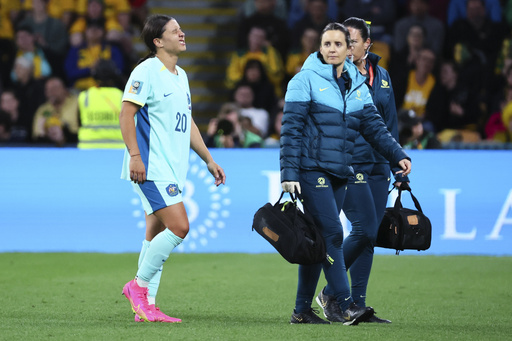An English study into the causes of knee injuries to women soccer players was launched on Tuesday.
‘Project ACL’ will focus on players in the Women’s Super League in England as part of a three-year study into an injury that is suffered by a disproportionate number of female players compared to their male counterparts.
Organizers of the project said women were two to six times more likely than men to suffer ACL injuries.
“The players have rightly called for more research into ACL injury, and Project ACL is a response to both their needs and those of the industry more broadly,” said Dr. Alex Culvin, head of strategy and research for women’s football at world players’ union FIFPRO.
The project is a joint partnership between FIFPRO, the Professional Footballers Association, Nike and Leeds Beckett University.
Organizers said research showed about two-thirds of ACL injuries in women’s soccer occurred without physical contact.
The study will include tracking factors surrounding workload, travel and appearances when players are in what is known as the ‘critical zone,’ which is the cumulative effect of playing back-to-back games with less than five days rest in between.
Several high-profile players have been struck down by ACL injuries in recent times and that has heightened attention on the issue.
Chelsea and Australia striker Sam Kerr was hurt in January. Alexia Putellas, Beth Mead and Leah Williamson have also gone down.
A U.K. parliament report said in March that the rise in ACL injuries to women highlighted a “systemic gender inequality in sports.”
It cited a lack of footwear specifically designed for the needs of female soccer players as one area of concern.
Project ACL says it will take a broad look at potential causes.
“Most of the research to date on ACL injury in women has focused on single sex-based risk factors like the mechanics of female bodies,” said Dr. Stacey Emmonds of Leeds Beckett University. “The research in Project ACL will look at the bigger picture to consider the gendered environmental factors that may influence injury risk in women’s professional football.”
___
AP soccer: https://apnews.com/hub/soccer
This website uses cookies so that we can provide you with the best user experience possible. Cookie information is stored in your browser and performs functions such as recognising you when you return to our website and helping our team to understand which sections of the website you find most interesting and useful.
